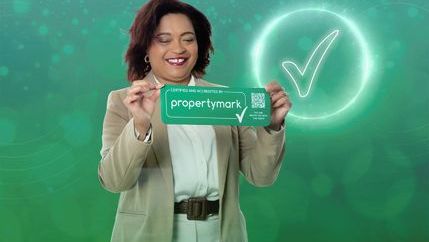
Propertymark actively advocates for more precise guidelines, and we understand the complexities of the current process. However, it's crucial that agents understand the severity of the consequences of failure to register. The penalties for non-compliance are significant and can have a lasting impact. Agents could face a prison sentence of up to two years or an unlimited fine.
Lobbying for sector-specific guidance
In 2024, HM Treasury consulted on ways to improve the effectiveness of the Money Laundering Regulations (MLRs), and we used data from Propertymark member agents, to illustrate the current challenges and how targeted improvements could enhance the system.
Notably, 96% of our survey respondents would welcome more prescriptive guidance on how to meet their obligations, especially for more complex situations like identifying beneficial owners and sources of funds. Current confusion over the obligations for agents means many are carrying out customer due diligence (CDD) on every new client, landlord, or tenant, even though this is not legally required, creating an unnecessary burden on businesses.
Responding to the results of the consultation in July 2025, the Treasury acknowledged the need for greater clarity for property agents, art market participants, and high value dealers – particularly around understanding when a ‘business relationship’ is established for CDD – and confirmed that HMRC will be tasked with updating their guidance for the sector.
Further results from our pooled accounts campaign
Our long-running dialogue with the UK Government on behalf of members has highlighted the challenges letting agents face in opening or retaining pooled or undesignated client accounts, without which they cannot legally operate.
During the 2024 consultation, banks indicated that the current link to simplified due diligence rules restricted their ability to offer pooled client accounts (PCAs). Regulatory changes now proposed by the Treasury aim to detach PCAs from strict SDD rules, thus enabling banks to offer PCAs more widely while maintaining necessary safeguards against money laundering and terrorist financing risks.
Digital identities and the DUAA
Propertymark, and other sector stakeholders, expressed strong support for UK Government guidance on using digital identity verification to meet identity checks under MLRs. The consultation revealed concerns from property firms around the legitimacy of digital identity providers and called for official accreditation or minimum standards for digital identity services to help mitigate risk and encourage broader adoption of such technology.
The Data (Use and Access) Act 2025 (DUAA), a legal framework for Digital Verification Services (DVS) in the UK, received Royal Assent after the consultation ended. However, these measures are not yet in place and will require secondary legislation for them to be enacted.
Who needs to register?
Letting Agency Businesses (LABs): A firm or sole practitioner who, or whose employees, carry out letting agency work when an agreement is concluded for the letting of land for a term of a month or more, and at a rent which, during at least part of the term, is or is equivalent to a monthly rent of 10,000 euros or more. This applies to both residential and commercial properties.
LABs must register with HMRC for anti-money laundering supervision if they handle client money, including fees, deposits, and rent, and if their rental activity exceeds the threshold.
Estate Agency Businesses (EABs): A firm or sole practitioner that carries out estate agency work as defined by the Estate Agents Act 1979. This includes UK-based EABs dealing with overseas property and EABs based abroad if their customer is based in the UK.
Download our AML guide for sales agents →
High Value Dealers (HVDs): Any business or sole trader that accepts or makes high-value cash payments of 10,000 euros or more (or the equivalent in any currency) in exchange for goods. This includes payments made in notes, coins, or traveller’s cheques. It also applies when a customer deposits cash directly into a bank account or pays via a third party.
This encompasses single cash payments of 10,000 euros or more for goods, several cash payments for a single transaction totalling 10,000 euros or more (including instalments or payments on account), and cash payments totalling 10,000 euros or more that appear to be broken down into smaller amounts to avoid the high-value payment limit.
Businesses Dealing in Goods: This includes agents or auctioneers who do not own the goods, transactions where the goods do not change ownership (e.g., sale or return), and transactions involving goods and services where the open market value of the goods is 10,000 euros or more.
Art market participants: A firm or sole practitioner who, ‘by way of business’, trades in, or acts as an intermediary in, the buying or selling of works of art where the transaction value (or a series of linked transactions) is 10,000 euros or more.
Legal requirements
The Money Laundering Regulations require agencies have procedures to anticipate and prevent money laundering. This reduces the risk that criminals may exploit businesses for financial crime.
Steps agents must take include:
- Develop a written, up-to-date risk assessment of the location operating in, customers and the value of transactions undertaken
- A written policy statement and procedures to show how the business will manage the risks of money laundering
- Train and support staff to understand and implement these policies
- Ensure procedures and audit processes are applied to all branches in or outside the UK
- Appoint a nominated officer (Money Laundering Reporting Officer - MLRO) to report suspicious activity to the National Crime Agency (NCA) and a Deputy Money Laundering Reporting Officer
- Ensure suitable control measures are in place
There is plenty of guidance to help agents and business owners across the sectors comply and set up procedures.
Read HMRC guidance for estate and letting agents →
Read HMRC guidance for high value dealers →
Read HMRC guidance for art market participants →
Download AML compliance checklist →
Propertymark supports compliance
To assist members in achieving and maintaining compliance against financial crime, we have a wealth of resources and comprehensive training. All these will confidently guide agents through best practices and ensure they have the knowledge to navigate AML regulations.
Agencies that subscribe to Company Advantage benefit from AML checks , ensuring they can remain fully compliant while keeping transactions moving efficiently. These checks provide instant verification, allowing agents to onboard clients quickly and reduce delays in property transactions.
Furthermore, our Compliance audit support offers a friendly audit experience combined with 1:1 advice, helping to navigate complex government regulations, avoid costly fines that can amount to tens of thousands of pounds, and safeguard against uncertainty.
Company Advantage
Company Advantage leverages the buying power of Propertymark's member network to procure services at a fraction of their commercial rate—and pass the high-quality savings onto you. Benefits will vastly outweigh the cost, delivering a far higher return for every Company Advantage subscriber.








